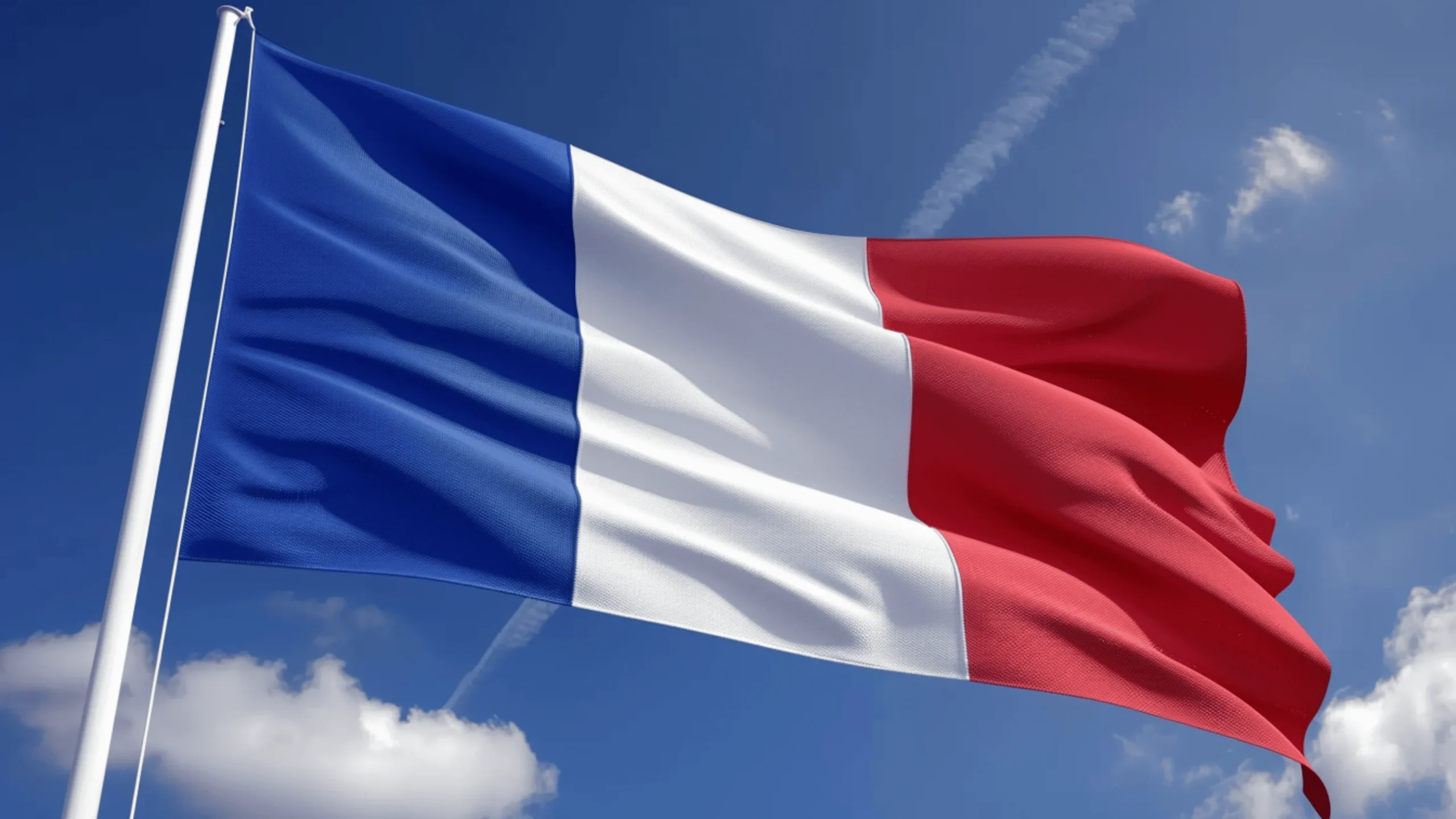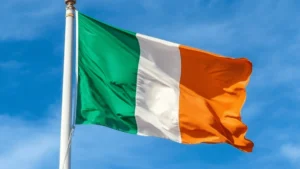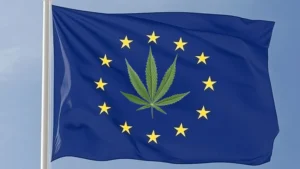If you’re here, the question “is CBD legal in France?” might be important to you. CBD is legal in France if it contains less than 0.3% THC. However, only CBD extracted from approved hemp varieties is permitted, and the sale of CBD products must comply with strict advertising regulations without any mention of the health effects of CBD. Knowledge of the regulations and laws governing the legal status of CBD in France can help avoid costly mistakes and ensure compliance, especially if you’re thinking of expanding into the CBD market in France.
The European Union (EU) is working towards a common policy for CBD products due to their significant health benefits. However, different European countries, including France, have different regulations for CBD oil and other CBD products. As other articles in our blog’s “Cannabinoids legality” section, explaining legal status of CBD in different countries, this article aims to clarify the legal status of CBD in France, providing valuable insights for entrepreneurs and other business representatives considering entering this profitable market.
While the prospects of the CBD market in France are promising, CBD products are still subject to stricter regulations globally and in France. If you’re looking to set up a CBD business, understanding the legal landscape of CBD in France is essential.
Are cannabinoids legal in France?
Some cannabinoids, including CBD, are legal for sale in France, but this legality is delicate and has been subject to significant juridical audit. CBD, for example, only became legal in France in 2021 after a court ruling assumed the existing bans on CBD products unconstitutional. However, this ruling also provided that CBD flowers (buds) containing CBD were illegal, a decision that was voided later.
This series of legal battles indicates that France has largely been obligated to legalize CBD due to pressure from its citizens. After these rulings, it became evident that CBD products containing less than 0.3% THC are legal in France.
Despite these changes for CBD, France has not made any compromises for other cannabinoids, and THC remains strictly illegal except with specific French government authorization.
Which cannabinoids are legal?
As it stands, the only legal cannabinoid in France is CBD. It was not until 2013 that France permitted the processing of cannabis into strictly medical products, which could only be used with a doctor’s prescription when all other available treatments had failed.
In 2018, France announced a broad inquiry into the potential medicinal benefits of cannabis, involving volunteer patients with various conditions. However, the start of this cannabis “medical experimentation” was delayed until 2021. Since then, some French citizens with epilepsy, neuropathic pain, and cancer have received cannabis therapy through this program. This highly restricted and experimental program remains the only state-authorized form of medical cannabis commerce in France. France has extended its medical cannabis trial once more, allowing the program to continue for an additional six months until July 31, 2025.
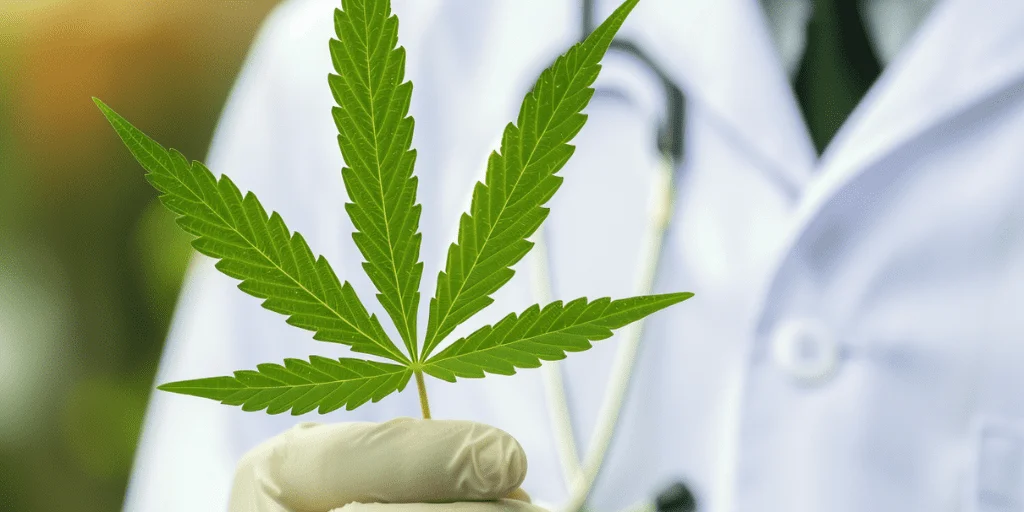
The current legal status of CBD in France
EU law permits the free trade of hemp with up to 0.2% THC content, and the EU Court of Justice has confirmed that CBD oils can be imported and exported under the free movement of goods regulation. In spite of this, before 2021, uncertain CBD laws in France have caused significant instability, leading to the closure of numerous companies in the CBD industry in France. In December 2021, the French government published an Order implementing Article R. 5132-86 of the Public Health Code to align French law with the objectives of the CJEU judgment.
The order states the following conditions for the legal status of CBD in France:
| The cultivation, import, export, and industrial use of hemp are permitted if only the Cannabis sativa L. variety is used, with THC content not exceeding 0.3% and included in the official catalogue of species and plants cultivated in France. |
| Hemp extracts can be made from the whole plant. |
| Hemp extracts and retail products containing hemp extracts (CBD products) may have traces of THC up to 0.3%. |
| CBD products that meet these requirements can be imported from non-EU countries or exported outside the EU, provided each product has documentation proving compliance with the law. |
Outlawing dried hemp (2021)
The December 2021 announcement also included provisions that outlawed the sale of dried hemp in France. However, this ban was not applied to hemp companies and farmers, who are allowed to possess dried CBD for further CBD manufacturing, such as oil production. Despite its popularity, the sale of CBD flowers (buds) or leaves for smoking, drinking, or brewing was prohibited. The government explained that this decision was motivated by concerns for consumer health and to aid law enforcement, which may struggle to differentiate between legal CBD products and illegal marijuana. This regulation has faced significant criticism, particularly from the Greens party in France.
In late January 2022, the Supreme Court of France temporarily suspended the ban on dried CBD. It is crucial to understand that this suspension is currently temporary and does not mean a full legalization of dried CBD in France. These changes might create uncertainty for businesses and consumers alike.
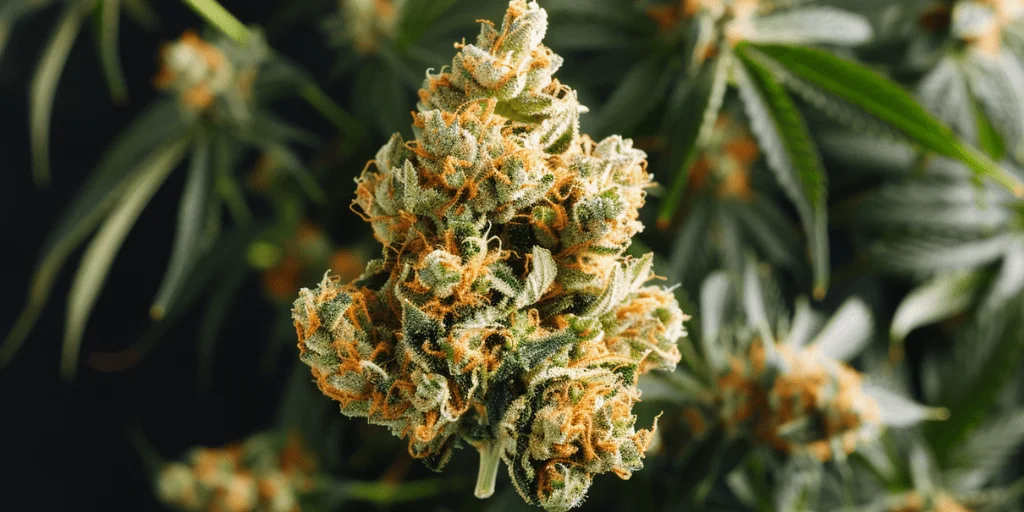
Navigating the legal landscape of the CBD market
France is among the largest producers of industrial hemp in the world, alongside China and Canada. It is estimated that France dominates the European market, accounting for approximately 40% of all industrial hemp grown in the EU. Despite this significant production capacity, the legal status of CBD in France was rather confusing until 2021.
If you’re thinking of starting a CBD business, France represents a promising market for CBD products. The country’s significant hemp production capabilities and the evolving legal landscape offer large opportunities. However, navigating the complex regulatory environment might still require careful attention to detail and a complete understanding of the market. While France is a good place to sell CBD products, there are difficulties that businesses must watch out for to ensure compliance and success in the growing CBD market in France.
Remember that here, at Hempo Solutions, we provide complete CBD business consulting services and you can contact us at any time.
General restrictions
In December 2020, the European Court of Justice ruled that the French ban on imported CBD products, which were legally produced in EU member states, was illegal under EU law. Specifically, the French authorities had banned all products produced from the flowers of hemp, even if their THC levels were very low. The European Court of Justice decided that since CBD cannot be treated as a narcotic, such a ban was not permissible unless authorities could present conclusive scientific proof that CBD is harmful. This decision marked the beginning of significant changes in the CBD market in France, a major market that could drive fast CBD’s growth across the entire EU.
As you know, in 2021 the French government issued a law allowing the sale of CBD products with THC content less than 0.3%, but it continued to prohibit the sale of industrial hemp flowers, regardless of their THC content. In response, the French courts, following the European Court of Justice’s ruling, stated that the ban on hemp flowers with high CBD content was unreasonable.
As a result, the legal status of CBD in France has now aligned more closely with other Western EU member states. CBD is completely legal and can be sold in stores and online, provided it does not exceed a THC content of 0.3%.
Restrictions in the French marketing
If you’re thinking of expanding into the CBD market in France, you should consider a smart marketing strategy. The French authorities tightly regulate various aspects of promoting CBD products.
CBD businesses are not permitted to make any claims about the health effects of CBD oil or other CBD products unless these claims are officially recognized by the national regulator in France (ANSM) or the European Commission. In practice, this means that while businesses might link their CBD oil to, for example, relaxation effects, similar to those of herbal tea, they cannot state that CBD helps treat any disease, as this is not yet officially acknowledged.
Furthermore, promoting hemp in advertising, regardless of its THC content, is not legal in France. Businesses can face fines if they violate this regulation.
If you’re planning to expand into the CBD market in France, remember that it is essential to create marketing messages that highlight the beneficial aspects of CBD without overstepping legal boundaries. Adopting a compliant and strategic approach to marketing can help businesses to succeed in the competitive CBD industry in France. If you have more questions about this, please contact us.
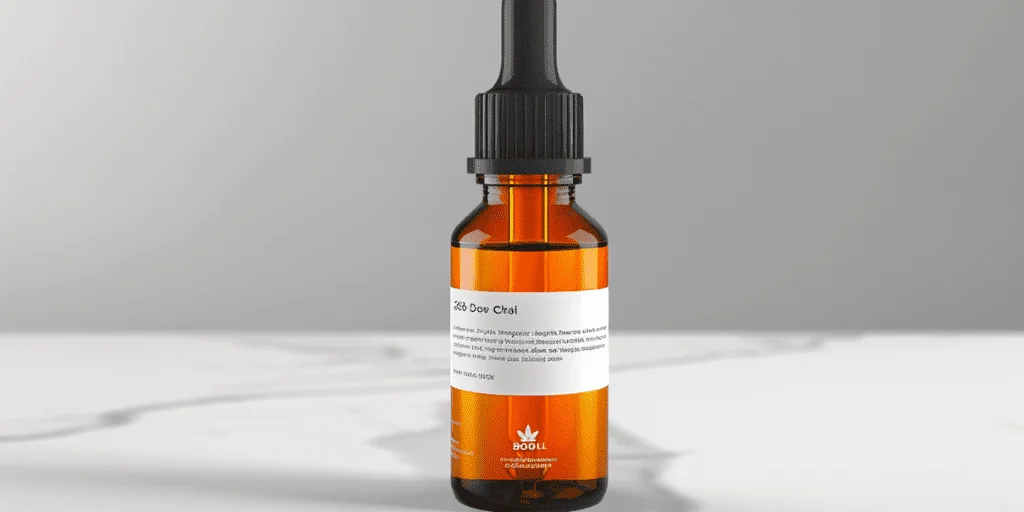
Caution is still required
CBD is legal in France as long as it meets all the conditions set out above. However, consumers or business representatives can find themselves in difficulty in certain situations. For example, transporting a large quantity of CBD products without proper certification or documentation of their origin can cause legal challenges.
Additionally, if a person is stopped by a police officer who is not familiar with the specific laws regarding CBD in France, misunderstandings can occur. Another risk arises if a saliva test indicates a high THC concentration, which might suggest the use of recreational cannabis or a CBD product derived from unreliable sources – that’s why you should always look for a reputable supplier with a third-party laboratory analysis.
Can you import CBD products into France?
Importation of CBD products into France is possible, though entrepreneurs face more restrictions compared to other EU nations. The French judicial system has only recently clearly divided CBD products from marijuana, and the French government remains really unfriendly towards cannabinoids of all kinds.
Entrepreneurs seeking to import cannabinoids into France are strongly advised to work with a distributor that already operates within the EU or EEA. The French legal case that led to the legalization of CBD specified that only CBD products made in EEA countries are strictly legal, raising potential issues with importing American CBD.
When offered in bulk, CBD itself typically does not indicate its nation of origin, but paperwork and packaging clearly states this information. This highlights the importance of working with a CBD manufacturer with operations in the European Economic Area like Hempo Solutions. Ensuring that all documentation and packaging comply with French regulations is very important to avoid legal complications and we’re here to help.
Who can sell CBD?
Since the change in the legal status of CBD in France, the sale of CBD products has grown. However, this rapid growth has also led to the emergence of fraudulent sellers who lack the proper authorization to market CBD products. Such sellers often offer CBD of arguable quality, with no traceability or guarantees regarding THC concentration and regulatory compliance.
To be authorized to sell CBD in France, you must be registered in the commercial register and demonstrate an accurate knowledge of cannabinoids and the laws governing them. For instance, authorized sellers need to be informed about the different varieties of CBD products*, their origins, production methods, and the levels of CBD and THC in the final product.
*The market offers a wide range of CBD products which dominate supply and demand. These include CBD gummies, disposable vapes, and more. Full-spectrum CBD oil is also gaining popularity among wellness enthusiasts due to its “Entourage effect”, enhancing the benefits of cannabinoids.

Tips for sourcing CBD products
CBD products that meet the specified criteria can be bought and sold without restrictions in France, both in physical stores and online. If you’re planning to start your own CBD business in France, it is crucial to carefully ensure that your supplier is compliant with all regulations. Consider the following:
| Accredited suppliers: ensure that you work exclusively with accredited manufacturers of CBD products which use trusted extraction methods and ensure third-party laboratory and in-house testing. This helps maintain not only the quality of CBD products, but also legal standards. |
| THC content compliance: your supplier must provide CBD products that contain no more than 0.3% THC. This compliance is essential to meet the legal requirements of CBD in France. |
Future outlook on CBD legality in France
Looking ahead as we’re already in the start of 2025, the future of CBD legality in France is promising. Continued legislative reforms, mixed with increased research and scientific understanding, may lead the way for even more inclusive and transparent regulatory framework.
Predictions suggest ongoing efforts to address regulatory gaps and ensure consumer protection, which could ultimately integrate CBD into mainstream healthcare practices.
Comparing CBD regulations across Europe and globally provides valuable insights into France’s approach. While some countries, like Switzerland, have adopted even more tolerant policies towards CBD, allowing broader access and fewer restrictions, others, like Norway, maintain stricter regulations.
The insights gained from other countries’ experiences can help shape a balanced approach that ensures safety while upholding innovation and growth in the CBD sector. As France continues to refine its policies, staying informed about global trends will be important for those involved in the CBD industry.
Key takeaways
So, is CBD oil legal in France? Let’s quickly review the main points described in this article.
To summarize, CBD is legal in France if it is extracted from hemp that has less than 0.3% THC content. The final CBD product should also contain no more than 0.3 % THC to comply with legal standards. Additionally, the law prohibits any type of hemp advertising and any mention of the health effects of CBD that are not approved by the French authorities.
These rules ensure that CBD products are safe for consumers and comply with legal standards. If you’re an entrepreneur currently entering the CBD market in France, understanding and adhering to these legal standards is crucial for operating successfully in the French CBD market. Staying informed about legal changes and maintaining compliance will help you to navigate the CBD market in France successfully.
Featured Articles

Blog Home
No Content
